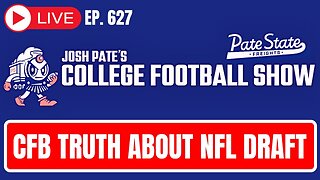Premium Only Content

Victims of Bankrupt Insured Collect Nothing
Keeping Clients Funds Without Right Excluded Professional Service
Profit, Remuneration, or Advantage When Insured Not Legally Entitled Excluded
Post 4856
In USCC Services, LLC, et al., The Pep Boys - Manny, Moe & Jack v. Young America, LLC, Endurance Risk Solutions Assurance Co., No. A23-1982, Court of Appeals of Minnesota (August 5, 2024) resolved an insurance dispute.
Appellants each obtained a judgment against an insured defendant in separate district court proceedings for breach of fiduciary duty based on the defendant mishandling funds that it held in trust for appellants. Since the insured was bankrupt and without assets the judgment creditors sought to collect from the defendants insurer 'swith a garnishment proceeding. They failed in the trial court and appealed to the Court of Appeals of Minnesota.
FACTS
Prelitigation Events
USCC Services LLC, through its affiliate U.S. Cellular, provides cellular telephone and internet services. Appellant Motorola Mobility LLC provides mobile products and services. The defendant in the underlying actions, Young America LLC, was a marketing-services company that provided a wide variety of services to its clients, which included appellants. Young America administered programs and services, including rebates, refunds, incentives, and prepaid-product programs, that involved remitting payments to its clients' customers.
In 2020, Young America became insolvent and ceased business operations. At that time, Young America should have had $493,757.19 in program funds from Motorola and $1,020,669.25 in program funds from USCC, but it did not.
Appellants' Underlying Lawsuits Against Young America
Appellants brought individual lawsuits against Young America. Young America did not answer the complaints. Endurance did not defend Young America against appellants' lawsuits and appellants obtained judgments for USCC in the amount of $1,020,669.25 and Motorola for $493,757.19 to repay the funds that Young America failed to hold in trust.
Appellants' Lawsuits Against Endurance
Appellants initiated this action as a garnishment proceedings against Endurance to collect on the judgments based on Endurance's insurance policy with Young America. Endurance did not provide coverage for appellants' judgments because they were excluded by three separate provisions of the insurance policy: the contractual-liability exclusion, the conduct-and-illegal-profit exclusion, and the professional-services exclusion. The district court determined that each of Young America's three wrongful acts fell within one or more of the exclusions. The district court granted summary judgment to Endurance concluding that the Endurance policy did not cover appellants' judgments.
DECISION
Summary judgment is appropriate when there is no genuine issue as to any material fact and the movant is entitled to judgment as a matter of law.
The Concurrent-Cause Doctrine Does Not Apply.
The Appellants posited that concurrent-cause doctrine allowed coverage. The Doctrine provides that damages resulting from concurrent causes are covered so long as the covered cause is a direct cause of the damage even though an excluded cause may also have contributed to the loss.
The Court of Appeals concluded that the concurrent-cause doctrine did not apply because there is only one cause of appellants' damages: Young America's wrongful use of the program funds-and the individual wrongful acts.
Young America's acts of commingling program funds, making preferential payments, and canceling the Lloyd's policy were not independent causes of appellants' damages and the concurrent-cause doctrine could not apply.
Endurance Met Its Burden To Show That The Policy Exclusions Apply
The conduct-and-illegal-profit exclusion provides, in relevant part: “The Insurer shall not be liable for Loss on account of any Claim based upon, arising from, or attributable to . . . an Insured having gained any profit, remuneration, or advantage to which such Insured was not legally entitled[] if established by a final and non-appealable judgment or adjudication adverse to such Insured.” Since Young America kept funds that belonged to appellants it gained a profit, remuneration, or advantage. The exclusion applies.
The professional-services exclusion provides, in relevant part: “Professional Services means any service performed by an Insured. ... The Insurer shall not be liable for Loss on account of any Claim made against a Company based upon, arising from, or attributable to the performance of or failure to perform Professional Services.”
Young America's duty to protect the funds were activities that were incidental or ancillary to the performance of Young America's core professional service of administering rebate programs. Because the conduct-and-illegal-profit exclusion and the professional-services exclusion apply to appellants' claims, the insurance policy does not cover appellants' judgments against Young America.
ZALMA OPINION
The plaintiffs were the victims of a business they trusted - the believed they could trust a company called Young America - and gave it money to hold only to find it wasted the money it held in trust. The plaintiffs sued Young Americas insurer for the money either stolen or just lost. The insurer refused because its policy had three exclusions that applied. The key to risk management is to be diligent when giving money to a company to hold and disburse. The due diligence failed and the plaintiffs have judgments that can only be framed, put on a wall, and wish they never heard of Young America.
(c) 2024 Barry Zalma & ClaimSchool, Inc.
Please tell your friends and colleagues about this blog and the videos and let them subscribe to the blog and the videos.
Subscribe to my substack at https://barryzalma.substack.com/subscribe
Go to X @bzalma; Go to Newsbreak.com https://www.newsbreak.com/@c/1653419?s=01; Go to Barry Zalma videos at Rumble.com at https://rumble.com/account/content?type=all; Go to Barry Zalma on YouTube- https://www.youtube.com/channel/UC
-
 LIVE
LIVE
Akademiks
1 hour agoDay 2/30. Smurk on Stream?? 50 cent keep going at Big Meech. Kendrick to Buy Kanye West Catalog?
3,229 watching -
 LIVE
LIVE
OhHiMark1776
4 hours ago🟢04-27-25 ||||| Halo Multiplayer Rumble: No. 13 ||||| Halo MCC (2019)
266 watching -
 LIVE
LIVE
TheSaltyCracker
2 hours agoThey Killed Her ReeEEEe Stream 04-27-25
21,295 watching -
 2:33:51
2:33:51
vivafrei
12 hours agoEp. 261: Criminal Judges ARRESTED! Election in Canada! Santos Sentenced! RFK Jr. & Autism & MORE!
113K45 -
 LIVE
LIVE
Amish Zaku
5 hours agoRumble Spartans "The One Year" Event
127 watching -
 LIVE
LIVE
Illyes Jr Gaming
2 hours agoLaid Back Sunday Night Warzone Stream!
16 watching -
 1:51:18
1:51:18
Nerdrotic
4 hours ago $4.19 earnedDiscoveries From Graham Hancock's "Fight for the Past" | Forbidden Frontier 099
21K4 -
 1:09:42
1:09:42
Sarah Westall
3 hours agoHidden Tech Resembles Star Trek: Malaysian Airline, Portals & Wormholes w/ Ashton Forbes
13.2K8 -
 1:13:46
1:13:46
Josh Pate's College Football Show
3 hours ago $0.16 earnedCFB Truth About NFL Draft | Sheduer & Ewers Slide | James Franklin vs Fans | 2025’s Biggest What-Ifs
2.72K1 -
 LIVE
LIVE
Due Dissidence
11 hours agoTrump's Polling COLLAPSES, WI Judge ARRESTED, Biden DRAGGED at WHCD, Corporations PULL Pride Funding
1,618 watching